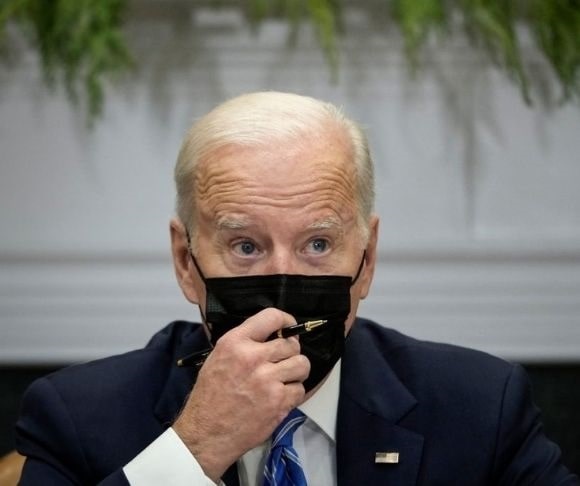President Biden’s Department of State (DOS) forked-tongue approach to strategic diplomacy is curious, if not downright confusing, to allies, friends, and foes alike. The DOS double-speak arms sales position came to a head when the United Arab Emirates (UAE) suspended talks aimed at a $23 billion weapons deal with the U.S. The Emirati pique centers on a “rare dispute” between the U.S. and one of its most important allies in the Persian Gulf. The Biden State Department wants to tell the UAE how and where it can use the weapons. The Abu Dhabi government objects, viewing those restrictions as trampling its prerogatives and independence.
[memberzone align=”right”] The UAE purchase of 50 F-35s, armed drones, and air-to-air and air-to-ground missiles was part of a negotiated arms agreement at the end of former President Donald Trump’s administration. The deal included the UAE formal recognition of Israel, an historic U.S. foreign policy win.
Enter the savvy Joe Biden administration that promptly puts the deal on hold. Why, you ask? Well, it seems the U.S. chief executive caved to criticism “of the UAE and Saudi Arabia over their years-long war in Yemen.” Consequently, the U.S. put restrictions on where and how the F-35s and other weapons can be used. For example, they can’t be used against the Iran-backed Houthi rebels in Yemen.
Emirati officials took exception to the U.S. dictating what it could do with the weapons it was purchasing. It was a matter of UAE sovereignty, the Abu Dhabi government asserted. But, wait, wasn’t it Ukraine’s sovereignty that Biden waved in the face of the Russian president Vladimir Putin to justify not committing to a written security guarantee that Ukraine would not join NATO? Yes, it was.
So, for the Biden national security team, sovereignty is a raison d’être when supporting Ukraine, but not when working with one of the U.S.’s staunchest allies in the Middle East. From The Wall Street Journal:
“U.S. intelligence agencies learned that China was secretly building what they thought was a military facility at a port near the Emirati capital of Abu Dhabi…Senior Emirati officials have said they didn’t think the site the Chinese were constructing was a military installation. But it was shut down.”
The UAE’s willingness to meet U.S. desires and behave as a valued, steadfast ally should prompt some reciprocity by the U.S. But not, it seems, from the current resident in the White House. As reported by The Associated Press, a senior Emirati diplomat, Anwar Gargash, said while speaking to a gathering at the Arab Gulf States Institute in the U.S. capital: “We took these American concerns into consideration, and we stopped the work on the facilities.” But regarding the arms transaction, a message out of the Emirati Embassy in the U.S. talked about the UAE suspension of the arms sale talks explaining: “The U.S. remains the UAE’s preferred provider for advanced defense requirements and discussions for the F-35 may be re-opened in the future.”

Joe Biden (Photo by Drew Angerer/Getty Images)
Meanwhile, if the U.S. believes that it can bully the UAE and that the Emirati government doesn’t have alternatives, think again. A Breaking Defense report explained, “When the UAE surprisingly announced a $19 billion deal between Abu Dhabi and Paris for the acquisition of 80 Rafale fighters last week, it caught the military world by surprise.” The article pointed out that the Rafale purchase was a message “to Washington that the Emirates have options should the Biden administration continue to block movement on the F-35 procurement.”
What makes the Biden administration’s intransigence on the F-35 issue confusing and duplicitous is that the White House is hanging its hat on the criticism of Saudi Arabia and UAE attacks on the Houthi terrorist rebels. In February, 2021, the U.S. administration took the Yemeni terrorists off the terror watch list. As reported by Fox News, not impressed with the Biden’s gesture, the Iran-backed Yemeni terrorist militia attacked the U.S. Embassy in Sana’a last November. In March of this year, the same rebels attacked a Saudi Arabian oil storage facility. To an observer of hostilities among the Gulf States, a reasonable person would applaud the willingness of the Abu Dhabi government to go after the Iran-supported terrorist group in Yemen – not Biden’s DOS.
So, if countries in the Middle East generally have trouble figuring out what the Biden team is up to and are wondering if the U.S. State Department can be trusted, you really can’t blame them. The attitude of the U.S. smacks of hubris, and in today’s hostile geopolitical atmosphere, arrogance is not a good look.
The views expressed are those of the author and not of any other affiliation.
~ Read more from Dave Patterson.




